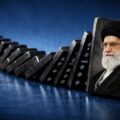 The Chain of Events That Killed Khamenei
The Chain of Events That Killed Khamenei


10 min read
Maimonides, the greatest rabbi and Torah scholar of the Middle Ages, saved the Jews of Yemen from forced conversion and martyrdom.
In the seventh century, Islam exploded out of the Arabian peninsula as Muslim armies conquered much of the Middle East, North Africa, and Spain. The Jews of these regions became subject to a minority religious status by the newly established Islamic dynasties. Jews, as well as other recognized religions at the time, became known as “dhimmis” or “people of the book”, which granted them “state protection” and “freedom of religion” in exchange for paying an annual poll tax known as “jizya”.
While Jews, for the most part, were allowed to govern their own communities according to their own laws, over time several regulations were introduced that transformed dhimmi minorities into second-class citizens. Dhimmis, including Jews, were forbidden from holding public office and were not allowed to bear arms. Jews could only ride donkeys while Muslims had the privilege to ride horses and camels. Jews were likewise forced to walk barefoot when entering a Muslim town or city. Synagogues could not be built higher than mosques and even Jewish homes had to be built on lower levels than Muslim homes. Jewish prayers had to be done quietly so as not to be heard in public.
Jews and other religious minorities were given two choices: convert to Islam or face immediate execution. In some cases, a third option of exile was permitted.
Jews were not legally allowed to defend themselves against attacks by Muslims and were not allowed to testify in court against a Muslim. Jews had to wear specially designated clothes that distinguished them as an inferior religious minority. Both conversion to Judaism and/or criticism of Islam were punishable by death.
Within this context, Jews managed to maintain their distinct communities throughout the Muslim world. During the Crusader period of the 12th century, however, several Islamic dynasties throughout the Middle East and North Africa abolished the “protected status” of Jews. Practicing Judaism as second-class citizens within Muslim society was no longer possible. Jews and other religious minorities were given two choices: convert to Islam or face immediate execution. In some cases, a third option of exile was permitted.
That’s the option that the family of Maimonides chose when the fundamentalist Almohad dynasty invaded Spain from North Africa in 1148. At the age of 10, he and his family fled Spain for Morocco and ultimately ended up in Egypt. Maimonides’ scholarship was well known and he rose to the position of Nagid (what we would refer to today as the chief rabbi of Egypt). In addition to Jewish affairs, Maimonides also had a career as a physician and was so successful that he was appointed as a personal doctor to the famous Muslim warrior-king Saladin. At the time, Saladin was sultan of the vast Ayyubid empire based in Cairo whose borders stretched from Turkey in the north down to Arabia in the south.
During this period, Yemen was under the control of local Shiite tribes who vied for power in violent territorial clashes. Between 1163 and 1173, a particularly ruthless Shiite warlord by the name of Abd al-Nabi came to power in large swaths of Yemen and imposed the strictest form of Islamic rule on his conquered territories. Just as the Almohad dynasty had instituted a policy of religious persecution in Spain during Maimonides’ childhood, so too was such a decree imposed by Abd al-Nabi on the Jews of Yemen. Many Jewish communities throughout the country were being systematically forced to choose between Islam or death. During this period of time, many Jews under duress had been forced to abandon their faith.
 Yemenite Jew in the American Colony ~1900. Courtesy of Library of Congress Washington d.c. (Image Copy – Jews of Yemen Museum, Rehovot. Israel)
Yemenite Jew in the American Colony ~1900. Courtesy of Library of Congress Washington d.c. (Image Copy – Jews of Yemen Museum, Rehovot. Israel)
To make matters worse, due to the suffering being experienced by the Jews of Yemen at this juncture, yearning for redemption increased and the sentiment was capitalized by a Jewish false Messiah. (Maimonides doesn’t not mention his name, nor is it mentioned in any other historical source. One rabbi seems to think the false Messiah was Samawal al-Maghribi, author of Confutation of the Jews, but there's no historical proof for that.) He claimed that Divine providence would forge together the religions of Judaism and Islam and used Biblical passages “to prove” his status as a prophet. He garnered a following of Jews from those who had already succumbed to Islamic conversion and from those who had resisted such a move until that point.
The growing movement raised a red flag for one of Yemen’s top Jewish leaders, Rabbi Jacob ben Natanel, who feared both heresy and apostacy would pose a direct threat to the survival of Judaism in Yemen. He took it upon himself to ask advice and seek counsel from the world’s greatest Torah scholar and Jewish leader at the time, Maimonides. In 1173, Rabbi Jacob wrote a letter outlining the difficulties being encountered by the Jews of Yemen and asking for help, guidance, and wisdom.
After reading the report submitted to him by Rabbi Jacob, Maimonides responded not just based on Jewish law, but from his own personal experience as someone who had dealt with a similar situation earlier in life. He understood both the need to uplift the community while disproving the false proof text of the Messiah claimant. After carefully writing a detailed letter, Maimonides sent it off via the Red Sea shipping route from Egypt to the port of Aden (in southern Yemen) where the message was delivered directly to Rabbi Jacob.
In the letter, Maimonides addresses the root cause of antisemitism, which in essence is the jealousy of the nations that stems from the Jewish People being chosen as the sole recipients of the Torah.
In the letter, Maimonides addresses the root cause of antisemitism, which in essence is the jealousy of the nations that stems from the Jewish People being chosen as the sole recipients of the Torah. The creation of new religions was an attempt to expropriate the special relationship that the Jewish People have with the Almighty. All the persecution and suffering of the Jews is not a sign of God’s displeasure, but rather exists to test our loyalty, as was the case in the wilderness in the time of Moses. All the Jews alive today are descendants of those who survived centuries of genocide and attempts at forced conversion and made a firm decision generation after generation to observe the Torah. By clinging to the Torah, we continue to exist as an eternal nation that outlives all empires, cultures, and civilizations. The events happening in Yemen throughout the Jewish world were predicted in the books of the Bible ages ago.
 Epistle to Yemen, Warsaw 1837
Epistle to Yemen, Warsaw 1837
Maimonides then preceded to disprove the arguments of the Messiah claimant that Judaism must somehow be synchronized with Islam by discrediting his interpretation methodology. He therefore declared the so-called Messiah a charlatan and advised everyone to stay away from him, effectively putting him into ex-communication. At the same time, he emphasized the principle of faith that the true redeemer would in fact arrive at some designated time in the future. He also listed all the specific qualifications needed for such an individual to be considered a potential Messianic figure as well as all the factors necessary for someone to be confirmed as the true Jewish Messiah as predicted by the prophets of Israel.
Rabbi Jacob was so enthralled by the response of Maimonides that he personally copied the letter dozens of times and sent it to all the Jewish communities throughout Yemen. The letter was read publicly in synagogues across the country and was received with lavish praise by the masses. It caused their Jewish pride to return with great fervor and their commitment to traditional Judaism had been rekindled with a restored sense of purpose.
The followers of the false Messiah abandoned him and he was subsequently arrested by Muslim authorities and executed. There was a renewed will power to resist the pressure to convert to Islam. Even those Jews who had previously converted to Islam had been permitted to rejoin the Jewish community based on the teachings of Maimonides that he clarified in the letter. The letter itself became known as Iggeret Teiman (the Epistle of Yemen) and was circulated throughout the Jewish world as a classic source of rabbinic literature.
 Ben-Ezra Synagogue, in Old Cairo Egypt, Where the archive (Genizah) documents were found.
Ben-Ezra Synagogue, in Old Cairo Egypt, Where the archive (Genizah) documents were found.
In addition to inspiring and uplifting the Jewish community of Yemen through his words, Maimonides was also a man of action. Capitalizing on his close personal relationship with Saladin, Maimonides shared with the Muslim ruler the plight of the Jews of Yemen, who were under the domain of his opponents, the Shiites. Saladin was well-known for relaxing the dhimmi laws and allowing Jews to live more equally in his Muslim empire. He could not understand how Jews were being mistreated in Yemen in the name of Islam.
Furthermore, Maimonides presented Saladin with a practical plan to conquer Yemen and absorb it into his Ayyubid empire. It would not just be about liberating the Jews, but would involve the conquest of the Islamic holy cities (Mecca and Medina) along the way, which would earn him legitimacy and prestige within the Muslim world. Conquering Yemen would also serve as a strategic point from which to control the sea route between Egypt and India.
We now know based on discoveries in the Cairo Geniza that correspondence between the rabbis of Egypt and the Jewish community of Yemen continued for generations following the Epistle of Yemen.
Saladin agreed to the plan, but due to his father’s sudden death, could not personally lead the campaign. Instead, he gave the task to his brother, Turan Shah, who led a successful military force that subdued all dissent in the distant land and extended the Ayyubid empire to the shores of the Arabian sea. By 1174, the Jews of Yemen were ruled by Saladin and all religious persecution came to an end.
 The Cairo Geniza
The Cairo Geniza
Correspondence between Maimonides and the leaders of the Yemenite Jewish community continued throughout his lifetime. Eventually Maimonides sent Rabbi Jacob a copy of his classic work, the Mishneh Torah, which detailed the world’s first full codification of Jewish law. It was copied and disseminated among the Jews of Yemen who integrated it into their regular study cycles of Torah and Talmud. While nearly all observant Jews today practice Jewish law in daily life according to the Shulchan Aruch (a later codification of Jewish law written Rabbi Joseph Karo in the 16th century), Yemenite Jews until this day still practice their Judaism according to the Mishneh Torah written by Maimonides in the 12th century. We now know based on discoveries in the Cairo Geniza that correspondence between the rabbis of Egypt and the Jewish community of Yemen continued for generations following the Epistle of Yemen.
Yemenite Jews were so grateful for the guidance and support of Maimonides that they inserted his name into their kaddish prayer, which is still today part of the Yemenite siddur (prayer book): “May He establish His kingship... in your lifetime and in the lifetime of the entire House of Israel and in the lifetime of our teacher Moshe ben Maimon [Maimonides]”
The Yemenite Jews are known for having the best-preserved Jewish traditions dating back to Biblical times and thanks to the spiritual guidance and political intervention of Maimonides, they were able to maintain and safeguard their Jewish identity until modern times.
Related Sources
https://aish.com/history-of-the-jews-of-yemen/
https://www.anumuseum.org.il/blog/yemen-and-maimonides/
https://www.jewishvirtuallibrary.org/maimonides-moses
https://mosaicmagazine.com/picks/history-ideas/2018/01/maimonides-and-the-jews-of-yemen/

Fascinating history demonstrating the real practitioners of genocide and ethnic cleansing. Avi I would love to talk to you. You can find a blog I wrote in the Times Of Israel titled "Rabbi, You're Fired!".
I loved the DETAILS you brought in the article. The Yemenite qaddish no longer has a reference to Rambam, that may have been around his lifetime. There are two basic Yemenite communities, each with somewhat different liturgies, one that is Rambam-based called "Baladi," & one that is Code of Jewish Law-based called "Shami." With that, Shami Jews ALSO bring more consideration to Rambam's opinion in certain situations such permitting "cooking" of already cooked food on shabbath. Interestingly, I know super-Shami Jews who are experts in Rambam to the point of knowing great parts of Mishneh Torah by heart, surprising because Shami largely follows Code of Jewish Law over Mishneh Torah.
This is great!
Concise, engaging and accurate. You must be an excellent guide Avi.
"Maimonides addresses the root cause of antisemitism, which in essence is the jealousy of the nations that stems from the Jewish People being chosen as the sole recipients of the Torah."
With all due respect, isn't it well past time to reject this fallacy? The Torah is a publicly available document that anyone may study and whose laws they may choose to accept. There's nothing to be "jealous of".
"The creation of new religions was an attempt to expropriate the special relationship that the Jewish People have with the Almighty."
There is no need to "expropriate" anything. We are all free to develop whatever "special" relationship with the Almighty that we feel.
"Jealousy" should not be confused with "envy". It is Jews who are jealous by guarding the Torah and their relationship with God as "theirs and theirs alone". This arrogance is one of the root causes of antisemitism.
Jews state that the Omnipresent is "our God" in the Shema but that doesn't mean "only ours". Certainly there are psalms that speak of those who worship idols but that doesn't imply that all non-Jews do.
I'm not challenging what "Jews state", though it is important to know what Judaism states. I'm challenging what the article states (i.e. what one Jew states).
"sole recipient" ... Jews cannot claim that other cultures have not received similar "revelations" to what the Jews claim, though I reject all such claims.
"expropriate" ... To have something expropriated, you would have to own it, first. This implies that the author believes that something is "only ours".
This attitude of ownership is very harmful to the relationship between Jews and non-Jews.
The problem is that it takes effort to study and to develop a relationship with the Almighty. People want the outcome without doing the work. The jealousy is subtle and arises from seeing others enjoying the outcome while discounting - blocking out from their minds - the fact that the enjoyers are working for it. So they create fantasies of special privilege instead of emulating the effort - and use those fantasies to justify their hatred.
Sorry, but I believe that the "fantasy" is in your mind.
It is absurd to argue that if there are people who admire Jews for their religion that they would be incapable of adopting those practices for their own lives. It is arrogance to think that only Jews are capable of establishing moral standards. It would be abrasive for non-Jews with high moral standards to hear such nonsense coming from Jews.
And, I'm not saying that there aren't followers of other religions and other ideologies who are also guilty of this sort of arrogance.
I just read the article sitting on a patio on the Big Island of Hawaii. Absolutely fascinating and enlightening. Thank you Aish.
"The creation of new religions was an attempt to expropriate the special relationship that the Jewish People have with the Almighty."
"He [Saladin] could not understand how Jews were being mistreated in Yemen in the name of [his religion]"
Even when they create their own religions, men take over and do not follow them.
Forced conversion, not allowing Jews to defend themselves, making them walk barefoot, ride donkeys, make synagogues lower than other buildings, etc. These actions come from the perverseness of men, are not from God, and parallel much the story of Purim.
Interesting.